Introduction
The village’s name is derived from the Sauk and Meskwaki word Oquawkiek, which means something like yellow banks, a reference to the color of the bluff faces along the Mississippi River in these parts. Oquawka was very nearly a city of some importance, which is why I think an appropriate motto could be: “Some cool stuff almost happened here.” They almost landed Monmouth College, almost became a major railroad hub, almost had a bridge across the Mississippi River, and almost hosted a literary journal edited by Edgar Allan Poe. Almost. Instead, Oquawka got good river access and a pleasant, small town lifestyle with few distractions.
History
Dr. Isaac Galland was the first European to build a cabin at Yellow Banks (in 1827), but it was really two Phelps brothers who were instrumental in getting Oquawka rolling. Stephen Sumner Phelps was born in Palmyra, New York in 1805, the fifth of seven kids. The Phelps family moved to Illinois around 1820. Alexis went up to Galena and mined lead, inviting his brother, Stephen Sumner, to join him, who did for a while, but got sick (probably from lead poisoning) and had to quit. While ill, Sumner learned from Jerry Smith, who lived near Yellow Banks, that Galland was discouraged and ready to sell his claim. Sumner sent word to his father, Stephen, to buy Galland’s land, which they got for $400. Galland moved across the river, while Sumner, his wife, Phebe, brother William, and an enslaved person moved in on September 10, 1828.
Another Phelps brother, William, went up to New Boston to establish a trading post near the Sauk and Meskwaki Indians who were led by Chief Keokuk. Sumner got into the fur trade (competing with Astor’s American Fur Company) and became friends with Meskwaki leaders Kiyo’Kaga (Keokuk), Taimah (Tama), and Ma-ka-tai-me-she-kia-kiak (Black Hawk). The Meskwaki gave Sumner the name Wah-wash-e-ne-qua (Hawk Eye).
During the Black Hawk War, Tama stayed at the Sumner Phelps House for a few days. When word got out that he was there, a group of drunken soldiers surrounded the house and demanded that Tama be turned over to their custody for arrest. Sumner refused. The soldiers threatened to fire on the house, but Sumner found a way to get them into town, maybe by promising them whiskey. Once in town, he threatened to shoot every one of them, a threat that seemed more plausible when a group of 50-ish armed townspeople showed up.
After the Black Hawk War, Alexis Phelps left Galena for Oquawka. In 1834, Colonel John B. Patterson moved to town. A veteran of the Black Hawk War, Patterson helped write Black Hawk’s autobiography, based on Black Hawk’s own dictation and with translation help from Davenport’s Antoine LeClaire. Patterson also founded a newspaper, the Spectator, in 1848 that published for 60 years.
Patterson’s son, Edwin, nearly scored a major coup when he negotiated with Edgar Allen Poe to edit a literary magazine. Edwin worked with his father at the Spectator and was quite a fan of Poe’s work. In December 1848, Edwin wrote a letter to Poe inviting him to edit a literary journal that was to be based in Oquawka. Edwin waited for a reply for four tortuous months, a wait that was longer than necessary because Edwin had misaddressed the letter.
Poe’s response was cautious but encouraging; he offered to meet in person to discuss the idea. Poe preferred to have the magazine based in St. Louis instead of Oquawka, but Edwin wasn’t convinced. He insisted that he had access to all the same distribution routes as if he was in St. Louis and that he could manage the publication much more cheaply in Oquawka than St. Louis. They exchanged a couple more letters and Edwin even sent Poe $50 to help him get started and to cover travel expenses for a meeting in St. Louis. Edwin’s hopes for the magazine were dashed when Poe died unexpectedly on October 7, 1849.
Sumner and Alexis Phelps surveyed and platted part of their claim for the village of Oquawka in July 1836, but the physical rendering was drawn by Nathaniel Currier of Currier and Ives fame. The Phelps brothers made a lot of money selling those lots, as expectations were high for Oquawka. Perhaps those expectations might have tempered if they had read a letter written by Alexis’ brother-in-law. In 1836, Richard Day wrote the following about Oquawka:
You can wade through the streets of the city of Oquawka in sand up to your knees, and oh, those noble, majestic and magnificent prairies of which you hear so much. They do, it is true, look magnificent, but of what use are they so long as they can never be inhabited?
Even with those sandy streets, Oquawka got off to a pretty good start. By the 1840s, the village was a busy Mississippi River port. The riverfront, a half-mile of graded rock that served as boat landing, was lined with warehouses. A report in 1848 listed significant quantities of the following products shipping out of Oquawka: corn, wheat, oats, barley, flax seed, white beans, potatoes, lard, tallow, and other pork products.
The Phelps brothers donated land for the county courthouse (Alexis also managed to win the contract to build it), churches, a school, and a cemetery. Sumner Phelps built a big house on the river in 1840 similar to the one Alexis built a few years earlier on the north end of town. Both houses still exist: Alexis’s as a museum and Sumner’s as a private residence.
When Alexis died on December 11, 1846, the funeral was held at the brand new Presbyterian church. Workers hurried to install the bell that had just arrived courtesy of the Phelps family (it is still in use today but that building is now the Oquawka Methodist Church). Abe Lincoln attended the funeral, although many people assumed he was just another Phelps brother because they looked so much alike.
Lincoln became close to the Phelps family around 1830 when the brothers’ father, Stephen, ran a trading post in Sangamon County. Lincoln, it is said, went with Sumner back to Oquawka and got stranded there during a snow storm, spending several weeks with Sumner and his family in the cabin. While there, Lincoln and Alexis became good friends, spending hours every day reading together. Years later, Sumner was quoted as saying: “I can still see Alexis and Abe sprawled on the floor in front of the fireplace with the books.”
There’s another fun, perhaps apocryphal story, about Lincoln and Sumner Phelps that appears in many books. Lincoln is said to have handed Sumner a pocketknife during a visit, telling him: “Sumner, this knife was given to me to keep until I found a homelier man than myself, so now I present it to you.”
Lincoln returned to Oquawka during his Senate campaign for a debate, sort of. On October 4, 1858, Stephen Douglas addressed a crowd in town; Lincoln did the same thing, but not until 5 days later.
- Fun fact: If you visited Oquawka in 1849, here’s what you might have spent on a few necessities: lodging: 0.125 cents per night per bed, plus 0.25 cents per meal; a half pint of whiskey cost 0.125 cents.
Oquawka’s early promise began to fade around 1851 when county voters rejected a measure to invest in a new railroad line. Instead, in 1855 the railroad bypassed Oquawka, building to Burlington, Iowa and adopting that city’s name as part of its corporate identity. (It could have been the Chicago, Oquawka, & Quincy Railroad!)
A railroad finally reached Oquawka in 1869 (the Rockford, Rock Island, and St. Louis, later purchased by the Chicago, Burlington, & Quincy), but by then it was not a major route. Nevertheless, Oquawka residents had twice daily passenger service and freight service until the 1950s.
During the peak years, Oquawka’s leaders made a pitch to attract a new college. In 1853, trustees of the Illinois Associate Reformed Presbyterian Church were making plans to start a university that would be based in the area. Oquawka tried to snag it, but the founders of the college didn’t want to locate in a river town, because they feared there would be too many distractions that would undermine the ability of students to focus on learning. River towns were apparently the place to live if you were a person with loose morals. Monmouth Academy opened in 1853 about 20 miles east in Monmouth, Illinois. It is still going today as a private school called Monmouth College with about 1,300 students.
By the 1880s, just three Mississippi River boats a week stopped at Oquawka. The region’s economy was centered around agriculture; apples, especially. Other exports included grains and cider vinegar. If you lived in the region around that time and needed to buy farm equipment or a wagon, you went to Oquawka. There were also quite a few commercial fishermen and a part of town called “fish row” with eight fishing houses. Residents of Oquawka didn’t want for choice when it came to food and commercial goods, because so much was shipped on the Mississippi River at that time.
For many years, warehouses lined the riverfront, as goods were stored while they awaited transportation on the Mississippi. Local folks ate a lot of river fish and spent recreational time on the river. In the 1880s, residents could take a Saturday afternoon excursion on the Maggie Reaney, dancing to the sounds of a string band and snacking at the lunch counter.
Vacation cottages were built along the river beginning around 1919 and extended north up to Delabar Mississippi River Youth Park. These made the region a popular vacation destination in the 1920s, even for Chicago gangsters, who liked to duck hunt here. Al Capone is supposed to have been fond of nearby Benton Island.
A mile north of Schuyler Street there was a very popular sandy beach that attracted up to a thousand bathers on peak summer days. If you got tired of swimming or sunning, you could visit one of the beachside dance halls. No one swam on Sundays, though. While some folks might be open for business on a Sunday (like excursion boats, trains, and saloons), swimming on city beaches was prohibited between 5am and 10pm. The beach fun ended in the 1930s with the construction of the lock and dam system, which raised the river level and covered the beach.
Like many communities in this part of the river, Oquawka was tied into the button business. In 1906, the city bought clam shells from button factories and crushed them into a material that was used to pave city streets. John LaFond operated a button factory in the 1920s. He brought in clam shells by rail, stamped out buttons, then sent them away for finishing.
In more recent years, the town rushed to put out a big downtown fire (1976) and cheered when hometown hero Todd Hamilton won golfing’s British Open in 2004; he was later named PGA Rookie of the Year (he was 39 years old at the time!).
Oquawka today still attracts a lot of pleasure boaters and other folks who prefer to spend their leisure time along the Mississippi River.
Exploring the Area
The city’s history is on display at the Oquawka Museum (2nd Street at Warren).
The county courthouse (4th St. and Warren St.) was built in 1841 by Alexis Phelps, with additions in 1905 and 1965. It is the second oldest in continuous use in Illinois.
The house built by Alexis Phelps in 1833 is still around, thanks to the heroic efforts of Don and Pat Bullinger and family, with the Henderson County Historical Society. The house sat abandoned for nearly 25 years before the Bullingers purchased and restored it using many period furnishings. The house is generally open just for special events but you can call to arrange a tour with advance notice (319.752.9720).
One of the more unusual (and unfortunate) events in the town’s history involved a thunderstorm and a circus elephant. The Clark and Walters Circus visited Oquawka during the summer of 1972. A thunderstorm rolled in on July 17, sending out a lightning bolt that struck and killed Norma Jean, a 29-year old, 6,500 pound Asian elephant. The keeper had her tied up in the middle of town, in a park next to the only tree, a metal chain holding her in place instead of a rope. Norma Jean died instantly, and the circus didn’t survive, either —her death essentially bankrupted it. They left her corpse in the park, which left Oquawkans with quite a dilemma. Faced with a huge, decaying animal corpse in the middle of town, residents hired a backhoe to dig a six-foot deep hole to bury her in. But that wasn’t the end of it.
Wade Meloan led an effort to build a marker for Norma Jean that was completed in 1976. He wanted to convey a sense of fun and whimsy. “I would drive by the grave on my way home and I noticed nothing was done. It was just an old grave, so I figured something should be done to honor Norma Jean,” Meloan told The Rock Island Argus in 1995. He became a cheerleader for the site, which drew in a steady number of curious visitors. For a few years the town even hosted a festival to mark the event that included an elephant walk, a white elephant sale, and a bake sale with elephant ears.
After Meloan died in 2004, a new cheerleader failed to emerge, but the site is still intact and waiting for you to visit. You’ll find the Norma Jean Grave on 5th St. between Mercer and Clay. If you want a little more background on the whole lightning-meets-elephant event, search the Internet for a short documentary by John Behnke called “Norma Jean.” You’ll be glad you did.
Parks Along the Mississippi River
Oquawka’s riverfront park (1st St.) has several benches that make great places for watching the river flow by.
Sports & Recreation
Just north of town, Delabar State Park (State Highway 164; 309.374.2496) has a couple of short hiking trails through the woods and a boat ramp to get on the river.
Entertainment and Events
Festivals
If you find yourself around Oquawka in early July, stop by for the annual Catfish Cookoff. Bring your own dish to enter in the contest or content yourself with sampling other people’s creations.
**Looking for more places to visit along the Mississippi River? Check out Road Tripping Along the Great River Road, Vol. 1. Click the link above for more. Disclosure: This website may be compensated for linking to other sites or for sales of products we link to.
Where to Eat and Drink
Looking for fresh fish? Head over to Papa Joe’s Fish House on Highway 164 just east of town.
Where to Sleep
Camping
Delabar State Park has a sprawling campground near the river that has plenty of shade; there are no sites on the river and no showers.
Resources
- Post Office: 403 Schuyler St.
Where to Go Next
Next stop upriver: Keithsburg.
Next stop downriver: Gladstone.
Community-supported writing
If you like the content at the Mississippi Valley Traveler, please consider showing your support by making a one-time contribution or by subscribing through Patreon. Book sales don’t fully cover my costs, and I don’t have deep corporate pockets bankrolling my work. I’m a freelance writer bringing you stories about life along the Mississippi River. I need your help to keep this going. Every dollar you contribute makes it possible for me to continue sharing stories about America’s Greatest River!
Oquawka Photographs
©Dean Klinkenberg, 2024, 2021, 2018,2013,2011
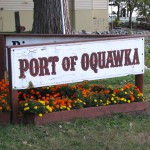

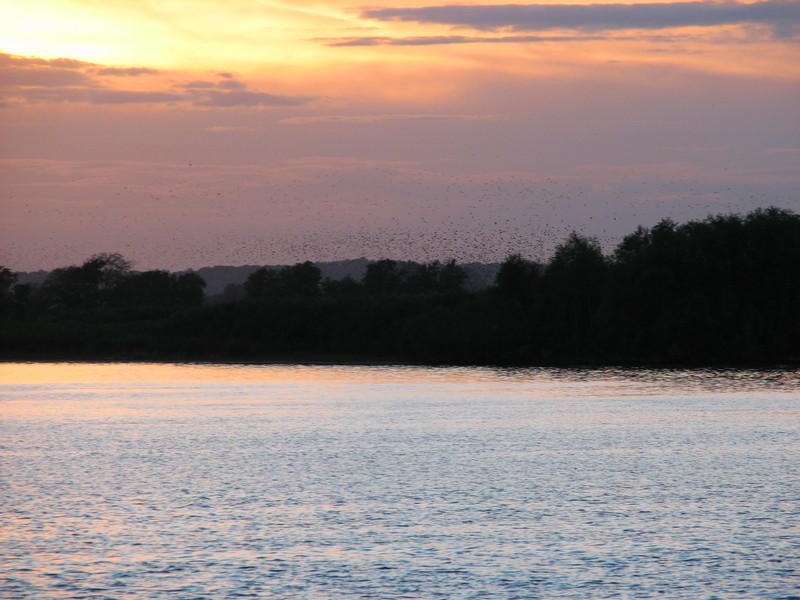
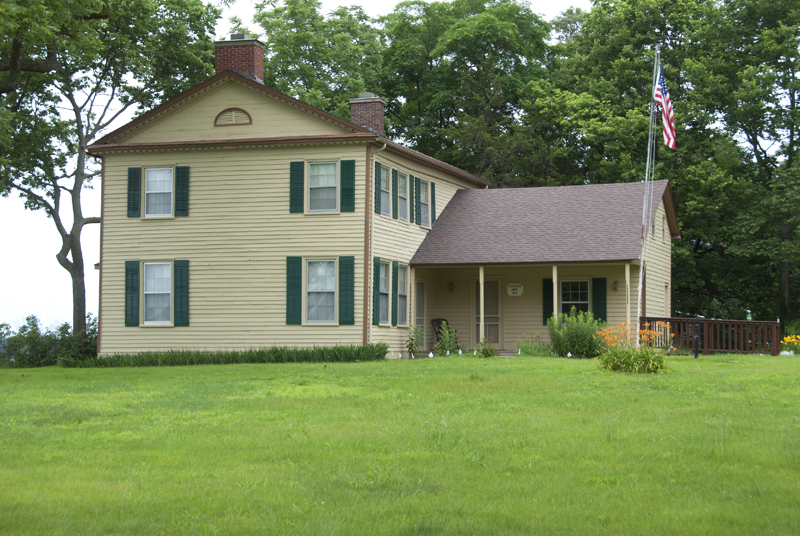
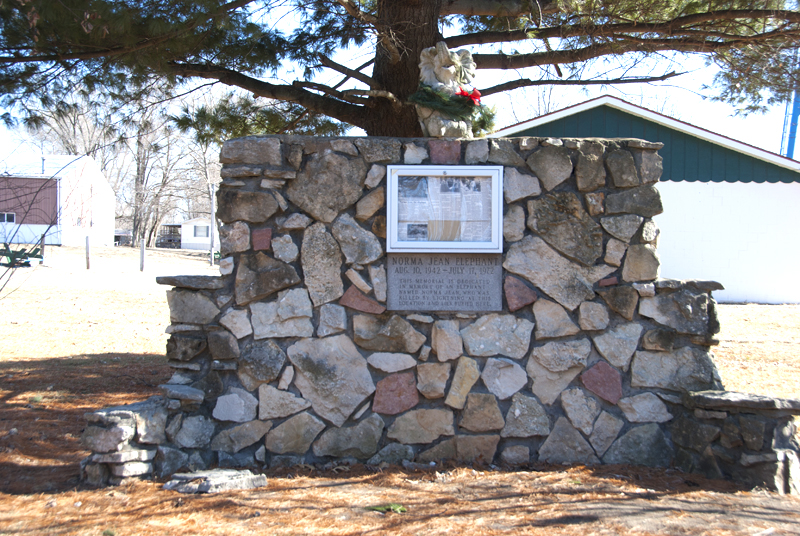
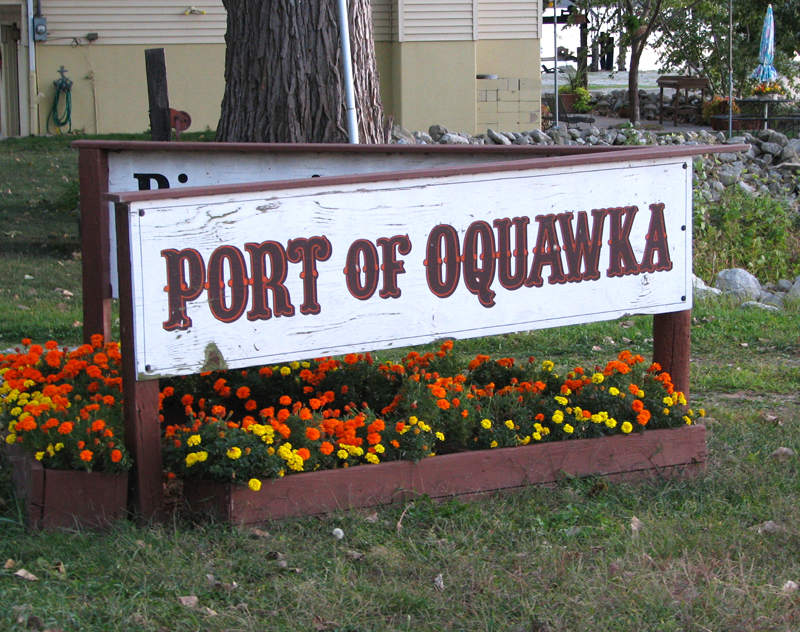
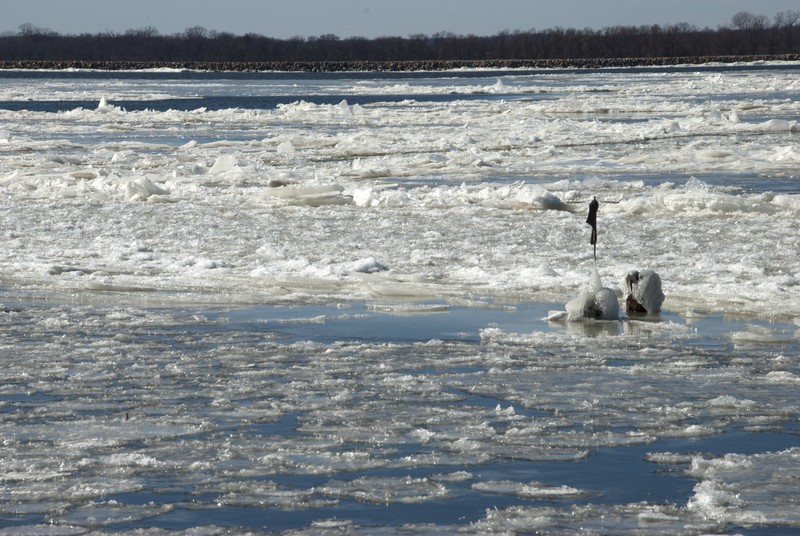
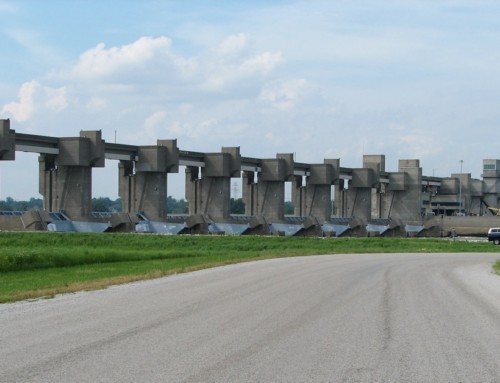
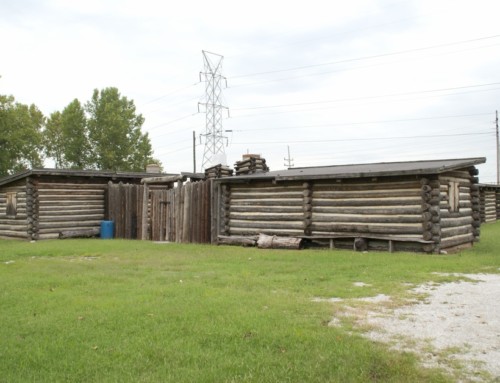
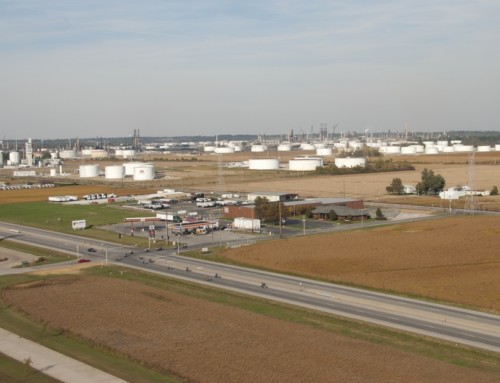
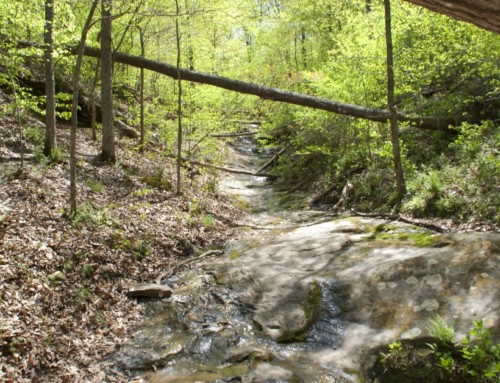
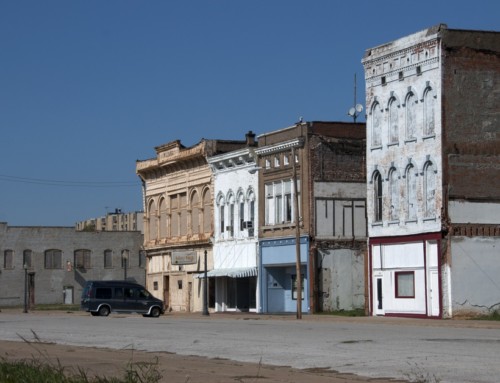
Thanks for finally talking about > Oquawka – Mississippi Valley Traveler < Loved it!
Forgot to mention this was Stephan A. Douglas court circuit route. and that it is rumored that the town was an underground railroad, especially at the Phelps House. Other than that, pretty good historical account.